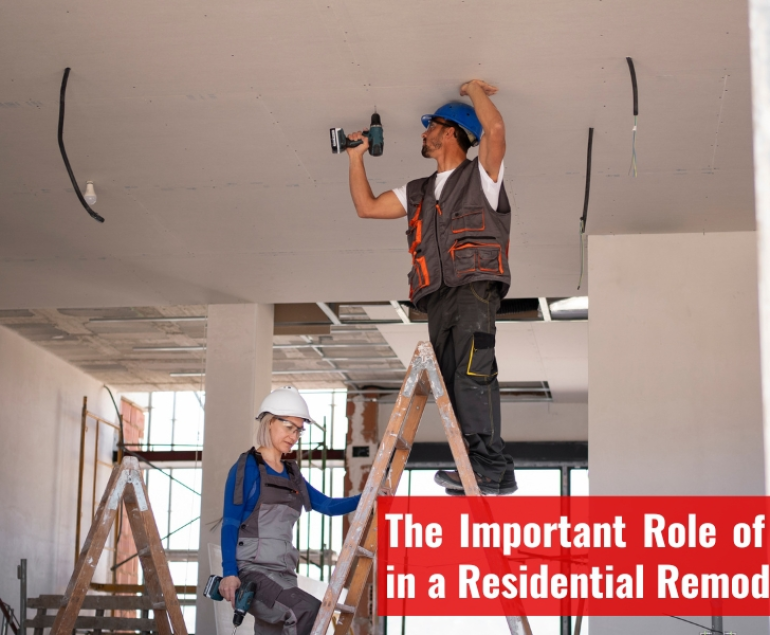Building codes are designed to look into the safety, structural integrity, and energy efficiency in construction. However, during construction or renovation, building code violations are surprisingly common. These violations can lead to fines, delays, and severe safety hazards.
Therefore, if you’re looking at some of the most common building code violations, the potential consequences, and tips on how to avoid them, here are all your answers!
Let’s deeply read and understand the concept of common building code violations in detail!
Key Areas Where Building Code Violations Occur
1. Structural Integrity
- Causes of Foundation Cracks: Foundation cracks can result from inadequate soil preparation, improper drainage, or poor materials. Cracks in the foundation threaten the stability of the entire structure.
- Avoiding Structural Issues: Engage a structural inspector to assess the foundation work, check soil quality, and ensure drainage is properly managed.
2. Electrical Wiring Violations
- Unsafe Wiring: Electrical issues, such as improper grounding or inadequate wiring, can lead to electrical fires or shocks. This is one of the most dangerous building construction code violations.
- How to Prevent This Violation: Hire licensed electricians who follow the latest codes. During renovations, make sure all electrical work is up-to-date with current standards.
3. Plumbing Code Violations
- Improper Pipe Installation: Poor pipe installation can cause water leaks, leading to mold growth and water damage.
- Solution: Follow local plumbing building violation codes and regulations. Have a certified plumber conduct a thorough inspection after the plumbing is installed.
4. Building Code Violations in Fire Safety
- Lack of Proper Exits: Including adequate exit points is a common oversight, especially in older buildings.
- Compliance with Fire Safety Codes: Ensure that exists are easily accessible, clearly marked, and free from obstructions. Fire inspections can help ensure compliance.
5. Improper Use of Building Materials
- Unsuitable Materials: Some materials are inappropriate for specific applications, like using untreated wood in areas with high moisture.
- Material Compliance: Only use materials approved for the intended application and climate. Consult building codes for guidance.
6. Commercial Building Inspections
- Issues in Commercial Buildings: Commercial buildings have more stringent requirements, often leading to overlooked house code violations. Inspections cover structural elements, electrical safety, and accessibility standards.
- Avoiding Commercial Violations: Property owners should schedule regular inspections by a qualified commercial building inspector to ensure code adherence.
Understanding Building Codes and Violations
What Are Building Code Violations?
Building code violations are instances where a structure or system fails to comply with established regulations. These codes vary by region and cover various topics, from structural integrity to fire safety. Violations can occur in residential and commercial buildings.
Types of Building Codes
- Structural Codes: Govern the physical integrity of a building.
- Electrical Codes: Cover wiring, grounding, and electrical safety.
- Plumbing Codes: Define standards for water systems and pipe installations.
- Fire Safety Codes: Ensure safe evacuation routes and fire prevention measures.
Common Reasons for Building Code Violations
- Neglect During Renovations: Many building code violations occur when homeowners or contractors cut corners during renovations. For example, DIY electrical work can lead to severe breaches.
- Lack of Awareness: Some homeowners need to be aware of their area’s codes, leading to unintended violations.
- Improper Inspections: Skipping inspections or not consulting with professionals increases the likelihood of violations.
How to Avoid Building Code Violations?
1. Hire Qualified Professionals
- Hiring certified contractors, electricians, plumbers, and inspectors is crucial. Professionals are trained to follow building codes and ensure your project is up to code.
2. Conduct Commercial Building Inspections
- For commercial buildings, regular inspections are essential. Commercial building inspectors can help detect code violations before they become significant issues, especially in complex structures.
3. Stay Updated on Local Codes
- Building codes are frequently updated. Make sure you stay informed about any changes in the building codes in your area to prevent accidental violations.
4. Obtain Necessary Permits
- Many code violations stem from failing to obtain the proper permits. Permits are typically required for structural remodeling, electrical work, plumbing, and more. Consulting with local home inspectors can clarify which permits are needed.
5. Documents All Renovations
- Documenting renovations, including structural and aesthetic changes, can be useful in case of future inspections. This documentation may prevent misunderstandings and identify areas that require further inspection.
The Role of Inspections in Avoiding Code Violations
Types of Inspections
1. Structural Inspection
- Structural inspections verify that the building’s core components, like the foundation, walls, and roof, meet code standards. Structural inspector can help identify potential issues early on.
2. Electrical Inspection
- Electrical inspections ensure that all wiring, outlets, and fixtures comply with safety standards. They’re crucial for preventing fires and electrical hazards.
3. Plumbing Inspection
- Plumbing inspections check that all pipes and fixtures meet code standards to avoid leaks, clogs, and contamination.
4. Fire Safety Inspection
- Fire inspections ensure compliance with fire safety standards, including exits, alarms, and sprinkler systems. Local fire marshals or home inspectoroften handle this type of inspection.
Building Violations to Watch Out For in Home Renovations
- Illegal Additions: Adding rooms or floors without permits.
- Non-compliant Electrical Work: DIY wiring that doesn’t meet the code.
- Inadequate Ventilation: Insufficient ventilation in kitchens and bathrooms.
- Missing Handrails on Stairs: A common oversight that poses a safety risk.
- Improper Window Size or Placement: Windows too small for emergencies, especially in basements.
Key Takeaways
- Building code violations can lead to fines, safety risks, and structural damage. Understanding the common types of breaches and how to prevent them is essential for anyone involved in construction or renovation.
- Hiring professionals like certified structural inspectors, plumbers, and electricians ensures your project is up to code.
- Regular inspections help identify issues early and prevent costly repairs or penalties in the future.
- Staying updated on local codes and obtaining the necessary permits are simple but effective steps to avoid violations.
Conclusion
Following building code violations isn’t just a bureaucratic necessity; it’s about ensuring the safety and durability of structures. Property owners and builders can create safe, compliant spaces that stand the test of time by understanding common building violations with the help of RSH Engineering & Construction and taking proactive steps to comply with codes.





